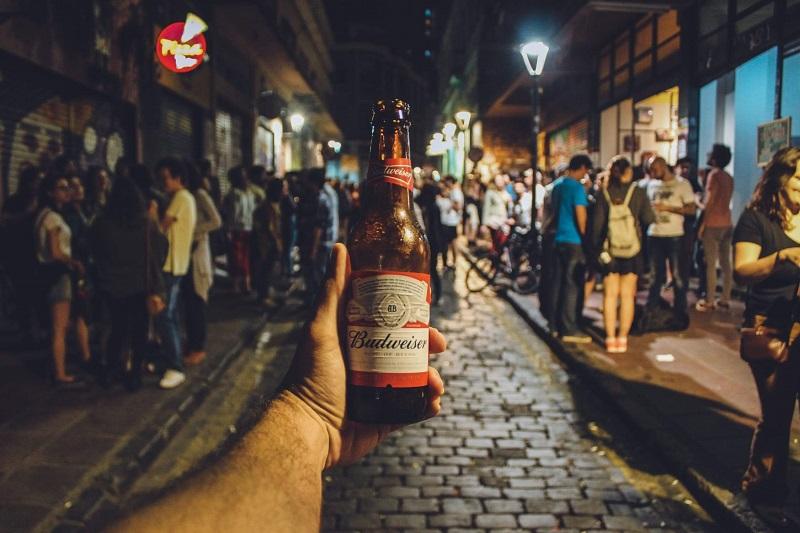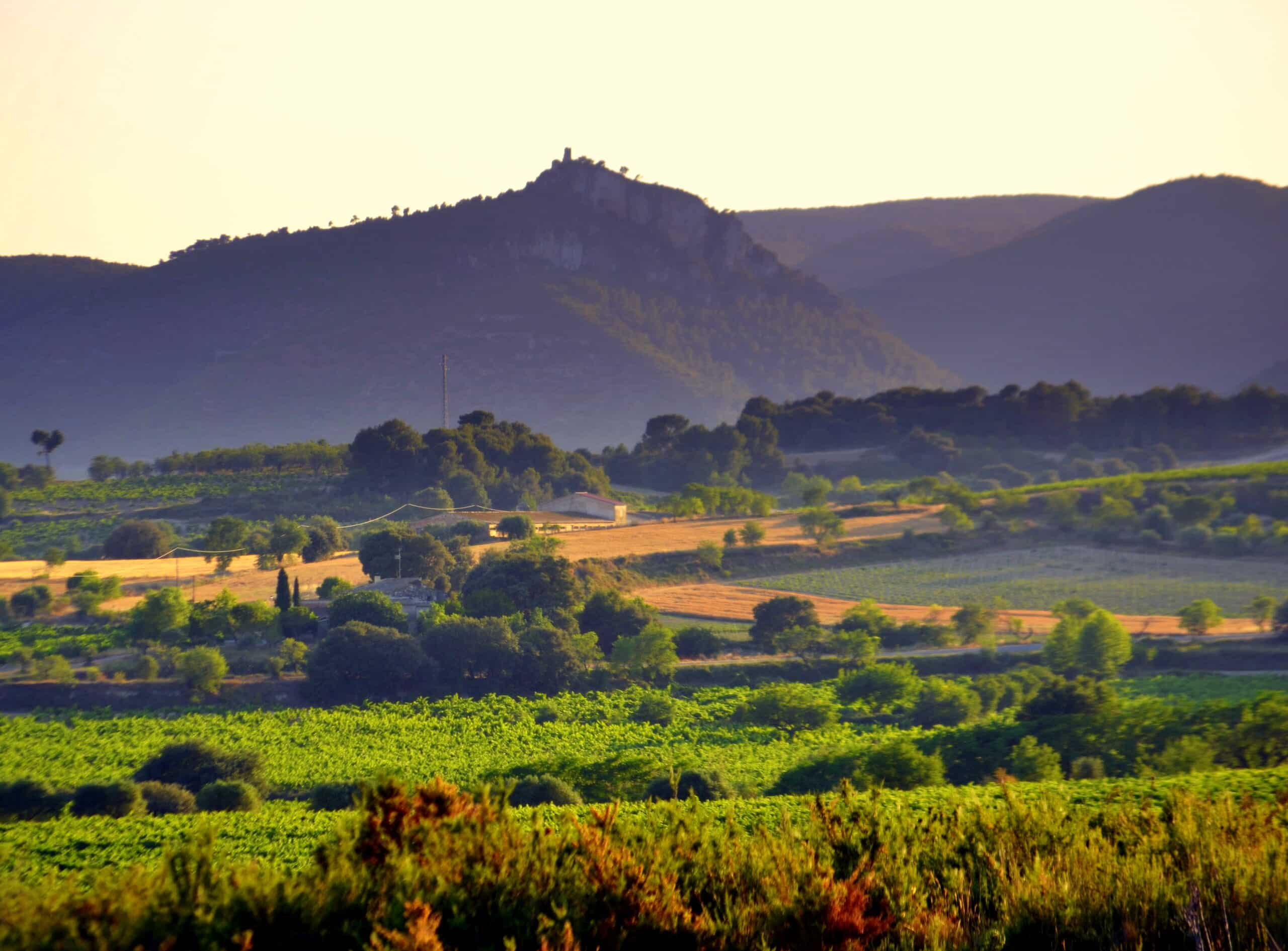Best Nightlife Cities in Europe
Europe is a continent where history meets modernity and this fusion is beautifully reflected in its vibrant nightlife. European cities transform into active hubs of entertainment, offering an array of experiences that cater to every taste. Whether you’re drawn to the pulsating beats of electronic music, the intimate ambiance of jazz bars, or an energetic atmosphere of lively nightclubs, Europe has it all.
Plan this trip with the Secret World app Organizza questo viaggio con l’app Secret World Organiza este viaje con la app Secret World Préparez ce voyage avec l’app Secret World Планируйте это путешествие в приложении Secret World 用 Secret World App 规划这次旅行
🌍 Secret World — the world’s largest digital travel guide, with millions of curated places, itineraries, and local stories. 🌍 Secret World — la più grande guida di viaggio digitale al mondo, con milioni di luoghi selezionati, itinerari e storie locali. 🌍 Secret World — la guía de viaje digital más grande del mundo, con millones de lugares seleccionados, itinerarios e historias locales. 🌍 Secret World — le plus grand guide de voyage numérique au monde, avec des millions de lieux sélectionnés, d’itinéraires et d’histoires locales. 🌍 Secret World — крупнейший в мире цифровой путеводитель с миллионами отобранных мест, маршрутов и локальных историй. 🌍 Secret World —— 全球最大的数字旅行指南,汇集数百万精选景点、行程和本地故事。
See all the places from this guide on an interactive map, save them to your own trip, and discover more hidden spots nearby. Guarda tutti i luoghi di questa guida su una mappa interattiva, salvali nel tuo itinerario e scopri altri posti nascosti nei dintorni. Ve todos los lugares de esta guía en un mapa interactivo, guárdalos en tu propio viaje y descubre más rincones ocultos cerca de ti. Voyez tous les lieux de ce guide sur une carte interactive, enregistrez-les dans votre voyage et découvrez encore plus de pépites cachées à proximité. Смотрите все места из этого гайда на интерактивной карте, сохраняйте их в своё путешествие и находите ещё больше скрытых локаций рядом. 在互动地图上查看本指南中的所有地点,把它们保存到自己的行程,并发现更多附近的隐藏景点。
From the underground clubs of Berlin to the chic bars of Paris, each city has its own unique flavor of nightlife. This article delves into some of the best nightlife cities across Europe, uncovering what makes each one special and why they continue to attract night owls from around the world. Whether you’re a seasoned traveler or planning your first European adventure, these cities promise nights you’ll never forget.
Please Download Our Mobile App here.
Berlin, Germany
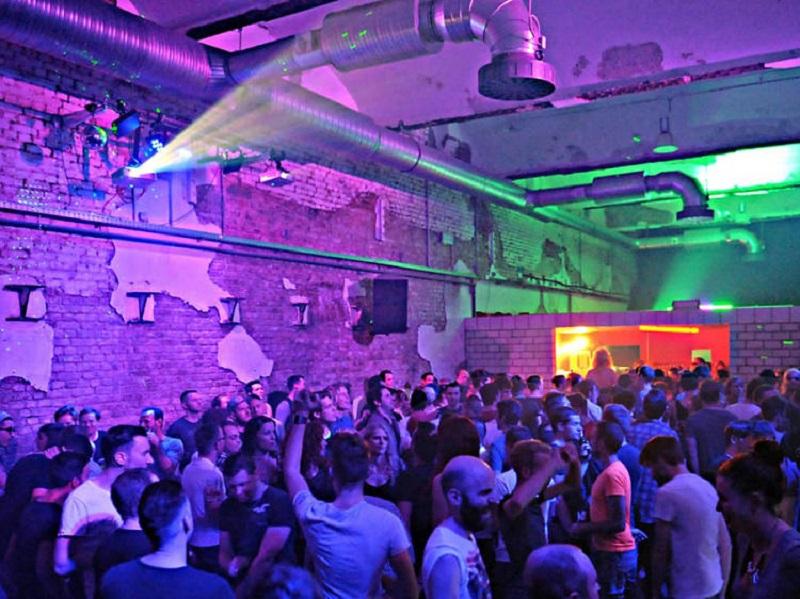
Berlin is often hailed as the nightlife capital of Europe, and for good reason. Known for its underground clubs and techno music, the city offers an unmatched experience for night owls. The legendary Berghain, housed in a former power plant, is a pilgrimage site for techno lovers.
The club’s strict door policy only adds to its mystique, making it a must-visit for those who manage to get in. But Berlin’s nightlife is not just about techno. The city also offers a variety of bars, live music venues, and alternative clubs. Kreuzberg, one of Berlin’s trendiest neighborhoods, is home to numerous bars and clubs that stay open until the early hours of the morning.
For a more laid-back experience, head to Prenzlauer Berg, where you’ll find cozy bars offering craft beers and local wines. Berlin’s nightlife is known for its inclusivity and open-mindedness, making it a welcoming space for everyone, regardless of background or orientation. Whether you’re looking to dance the night away or enjoy a quiet drink, Berlin offers something for every taste.
Barcelona, Spain
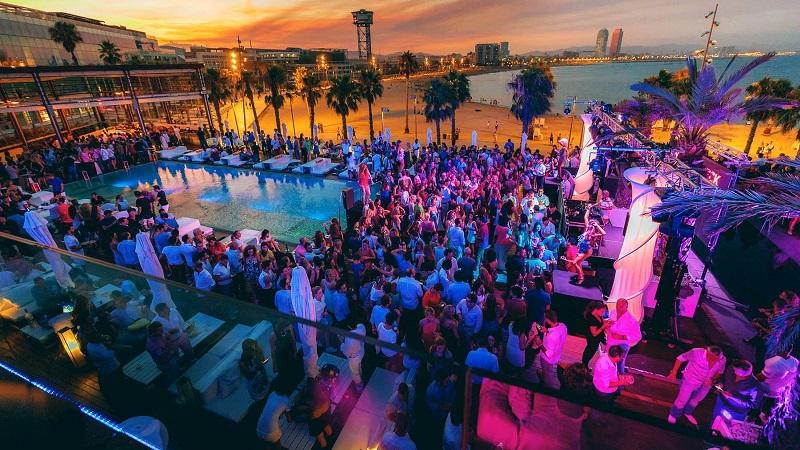
Barcelona is a city that comes alive at night, with a nightlife scene as diverse as its culture. The city’s beach clubs, rooftop bars and late-night tapas joints create an atmosphere of perpetual celebration. One of the most famous nightlife districts in Barcelona is El Raval, known for its eclectic mix of bars and clubs catering to all musical tastes.
The city’s beach clubs, like Opium and Pacha, offer the perfect blend of music, dance and seaside views. These venues often feature international DJs and stay open until the early hours of the morning, making them popular spots for both locals and tourists. Barcelona’s nightlife is not just about clubs.
The city is also home to numerous jazz bars, flamenco shows, and cultural events that run late into the night. The Gothic Quarter, with its narrow streets and historic buildings, offers a more intimate nightlife experience, with hidden bars and speakeasies waiting to be discovered.
Amsterdam, Netherlands

Amsterdam is famous for its canals, but its nightlife is equally impressive. The city offers a variety of nightlife experiences, from trendy nightclubs to traditional Dutch pubs known as “brown cafes.” The Leidseplein and Rembrandtplein squares are the heart of Amsterdam’s nightlife, featuring a plethora of clubs, bars and live music venues.
For electronic music lovers, Amsterdam is home to some of the best clubs in Europe. Venues like Paradiso and Melkweg are iconic for their live music and DJ sets, attracting top international talent. If you’re looking for something more laid-back, head to one of the city’s many brown cafes, where you can enjoy a beer or genever (Dutch gin) in a cozy, traditional setting.
Amsterdam’s Red Light District also offers a unique nightlife experience, with its mix of adult entertainment, bars, and late-night eateries. However, it’s important to approach this area with respect, as it is also a historic part of the city.
Prague, Czech Republic
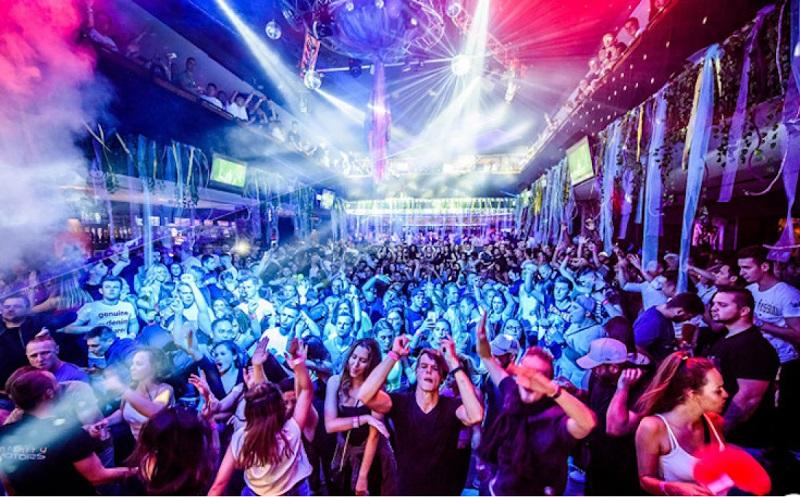
Prague, with its stunning architecture and rich history, is also a city that knows how to party. The Czech capital offers a vibrant nightlife scene that caters to all tastes, from lively nightclubs to traditional beer halls. One of the most famous nightlife spots in Prague is Karlovy Lazne, a five-story club that claims to be the largest in Central Europe.
Each floor of Karlovy Lazne offers a different music genre, from dance and hip-hop to oldies and chill-out. This makes it a perfect spot for groups with diverse musical tastes. If you prefer something more low-key, head to one of Prague’s historic beer halls, where you can enjoy some of the world’s best beer at very affordable prices.
Prague’s Old Town is also home to numerous bars and clubs, many of which are housed in historic buildings. The city’s underground bars, often located in medieval cellars, offer a unique and atmospheric experience. For a more modern vibe, head to the trendy district of Žižkov, known for its alternative bars and live music venues.
Paris, France

Paris, the City of Light, is also a city of vibrant nightlife. While it may be more famous for its romantic ambiance and cultural landmarks, Paris offers a nightlife scene that is both sophisticated and diverse. The city’s many arrondissements each offer a different vibe, from the chic bars of the Marais to the lively clubs of Pigalle.
The area around Bastille is particularly known for its nightlife, with a mix of bars, clubs, and live music venues. For those looking for a more upscale experience, the Champs-Élysées is home to some of the city’s most exclusive nightclubs. Paris is also famous for its cabarets, with the Moulin Rouge being the most iconic.
A night at the Moulin Rouge offers a unique blend of entertainment, including dance, music, and elaborate costumes. For a more intimate experience, visit one of the city’s many jazz clubs, where you can enjoy live music in a cozy setting.
Lisbon, Portugal
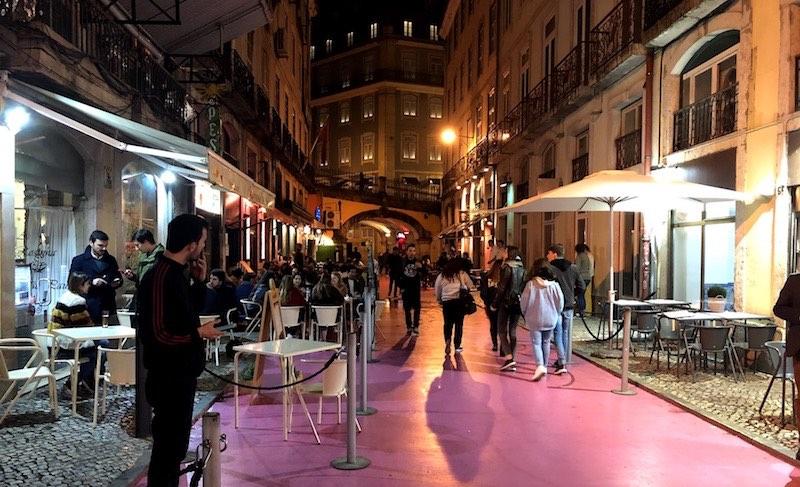
Lisbon’s nightlife scene is as warm and welcoming as the city itself. The Portuguese capital offers a variety of nightlife options, from traditional Fado music performances to trendy clubs and bars. The Bairro Alto district is the heart of Lisbon’s nightlife, with narrow streets lined with bars that come alive after dark.
Fado music, a traditional Portuguese genre characterized by its soulful melodies, is an essential part of Lisbon’s nightlife. Many bars and restaurants in the Alfama district offer Fado performances, providing an authentic and culturally rich experience. For those looking to dance, Lisbon’s clubs offer everything from electronic music to Latin rhythms.
Lux Frágil, one of the city’s most famous clubs, is known for its cutting-edge music and stylish crowd. The club’s rooftop terrace offers stunning views of the Tagus River, making it a perfect spot to watch the sunrise after a night of dancing. Lisbon’s nightlife is also known for its affordability, with many bars and clubs offering reasonably priced drinks and no cover charge. This makes it a popular destination for both locals and tourists looking to enjoy a night out without breaking the bank.
Conclusion
Europe’s nightlife is as diverse as its cultures, offering something for everyone, whether you’re looking to dance until dawn or enjoy a quiet evening with a glass of wine. From Berlin’s techno temples to Lisbon’s Fado bars, each city offers a unique experience that reflects its own cultural identity.
Take this guide with you on the road Porta questa guida con te in viaggio Lleva esta guía contigo en el viaje Emportez ce guide avec vous sur la route Возьмите этот гид с собой в путешествие 旅途中随身携带本指南
Don’t just read about this place – use this guide while you’re actually there. Non limitarti a leggere di questo luogo: usa questa guida mentre sei davvero lì. No te limites a leer sobre este lugar: usa esta guía mientras estás realmente allí. Ne vous contentez pas de lire sur ce lieu : utilisez ce guide quand vous êtes vraiment sur place. Не просто читайте об этом месте — используйте этот гид, когда вы действительно здесь. 不要只在网上看看这个地方——真正到访时也用这份指南。
- See all these places on a live interactive map
- Vedi tutti questi posti su una mappa interattiva in tempo reale
- Ve todos estos lugares en un mapa interactivo en vivo
- Voyez tous ces lieux sur une carte interactive en temps réel
- Смотрите все эти места на интерактивной онлайн-карте
- 在互动地图上查看所有这些地点
- Save this guide as a trip and edit it on the go
- Salva questa guida come itinerario e modificala in qualsiasi momento
- Guarda esta guía como un viaje y edítala sobre la marcha
- Enregistrez ce guide comme itinéraire et modifiez-le à tout moment
- Сохраняйте этот гид как маршрут и редактируйте его в пути
- 将本指南保存为自己的行程,并随时编辑
- Discover more hidden spots around you with one tap
- Scopri altri posti nascosti intorno a te con un solo tap
- Descubre más rincones ocultos a tu alrededor con un solo toque
- Découvrez encore plus de lieux cachés autour de vous en un seul clic
- Находите ещё больше скрытых локаций вокруг одним касанием
- 一键发现你周围更多隐藏景点
